We wanted to go out with a bang - Niteworks say farewell
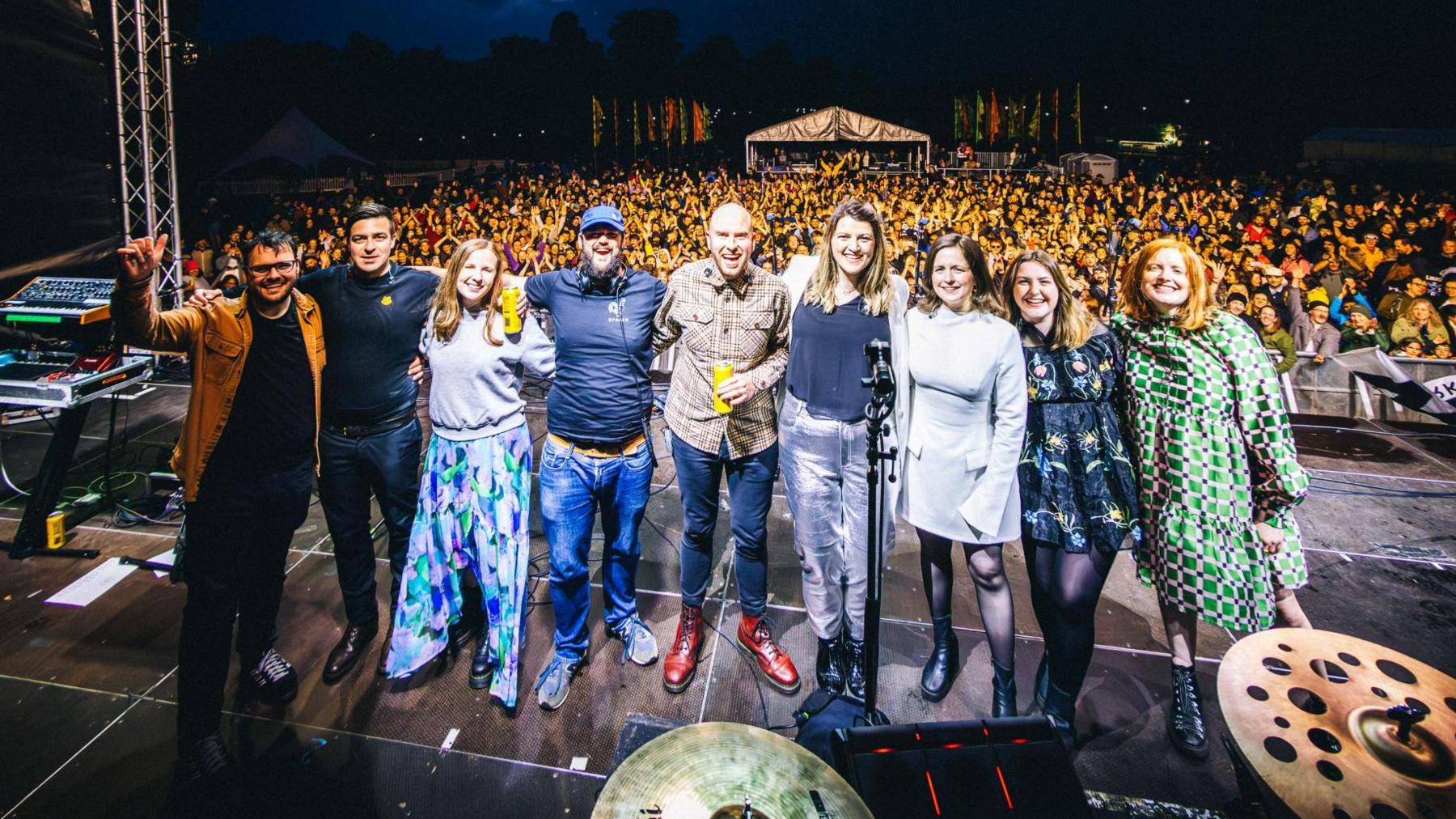
Niteworks take a bow at the Reeling festival earlier this year
- Published
There is no rock n' roll drama to the end of Niteworks.
The Skye band are calling it quits later this year, after a career in which they merged together traditional Gaelic music with club beats and electronica.
For guitarist and bagpipe player Allan MacDonald the decision was a simple, if emotional one.
"More and more we found that we weren’t able to give the time to the music that it deserved or needed," he says, ahead of a closing run of shows in the autumn.
"Niteworks have never been our full time vocation - we all have day jobs. We’re all getting a bit older, we all have families and it was getting to the point where you have to prioritise things.
"It got to a point of thinking ‘let’s go out on a high and draw a line under it. We wanted to go out with a bang."
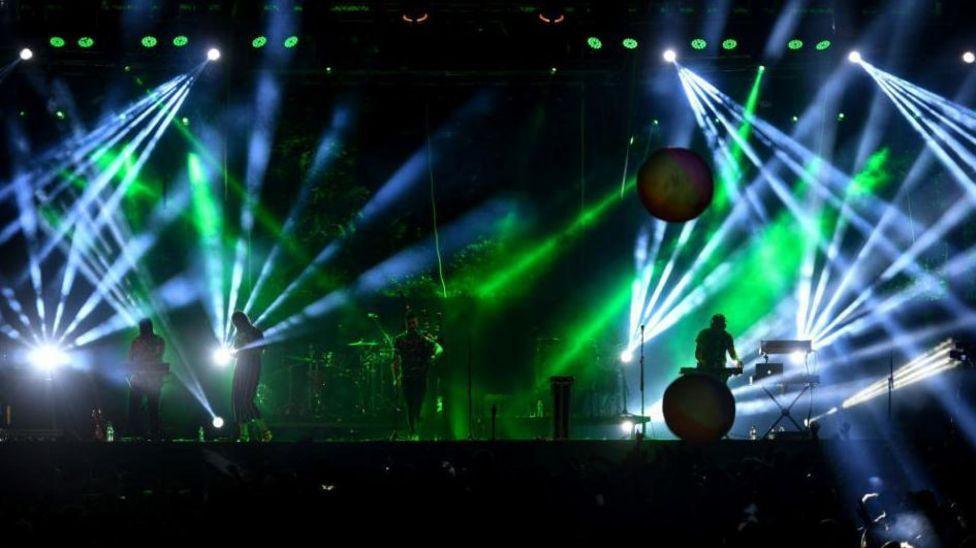
Niteworks mixed club culture with trad music
That noisy farewell has included several headline festival appearances in recent months, including a memorable night topping the bill at the Reeling festival in Rouken Glen Park in East Renfrewshire.
There has also been a farewell single, with the quartet - Allan, Innes Strachan, Christopher Nicolson and Ruairidh Graham - covering Runrig's "An Toll Dubh" ("The Dungeon"), a choice that showcased the Gaelic heart of the group.
"It's a warning to young Gaels, and to young people in general really, that if you don’t use and celebrate your culture and your language there is a chance it will fade away and get locked in the dungeon," says Allan.
"We thought it was a good message to portray. We don’t want to sound grandiose but just because we are bowing out that doesn’t mean others should stop."
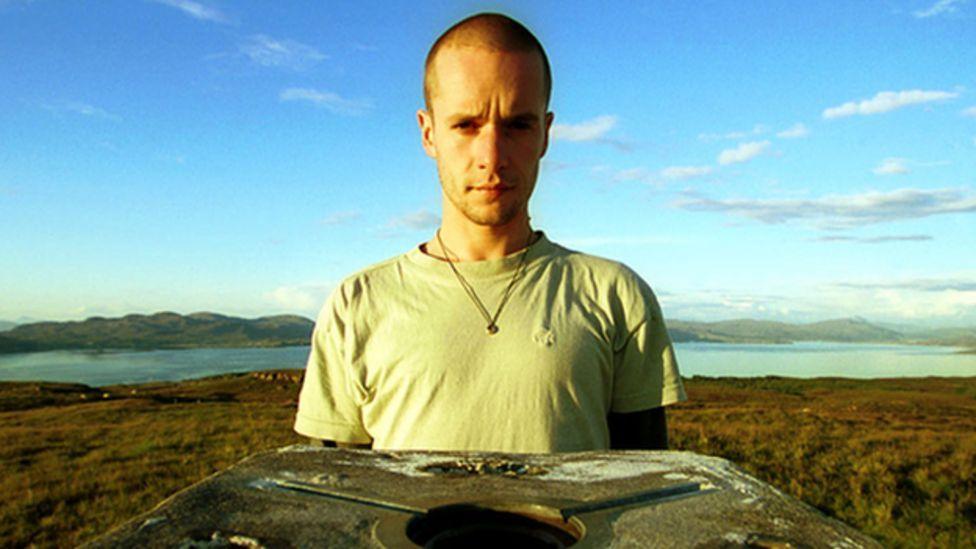
Martyn Bennett's music was hugely influential
Modesty aside, the group deserve plenty of lavish praise.
They formed in 2007, having all been friends at school, and were inspired by "some very strong bands doing fusion music".
Among those acts was Martyn Bennett, the influential musician who fused Celtic and dance music together on several brilliant albums, before dying from cancer in 2005 aged just 33.
Within years Niteworks were being compared to the likes of Bennett, having blended together modern and trad styles.
They became regulars on the festival circuit and released three critically acclaimed albums, although Allan admits that scepticism regarding their usage of Gaelic came so heavily that it "felt like a fight, to a point where it was verging on demotivating".
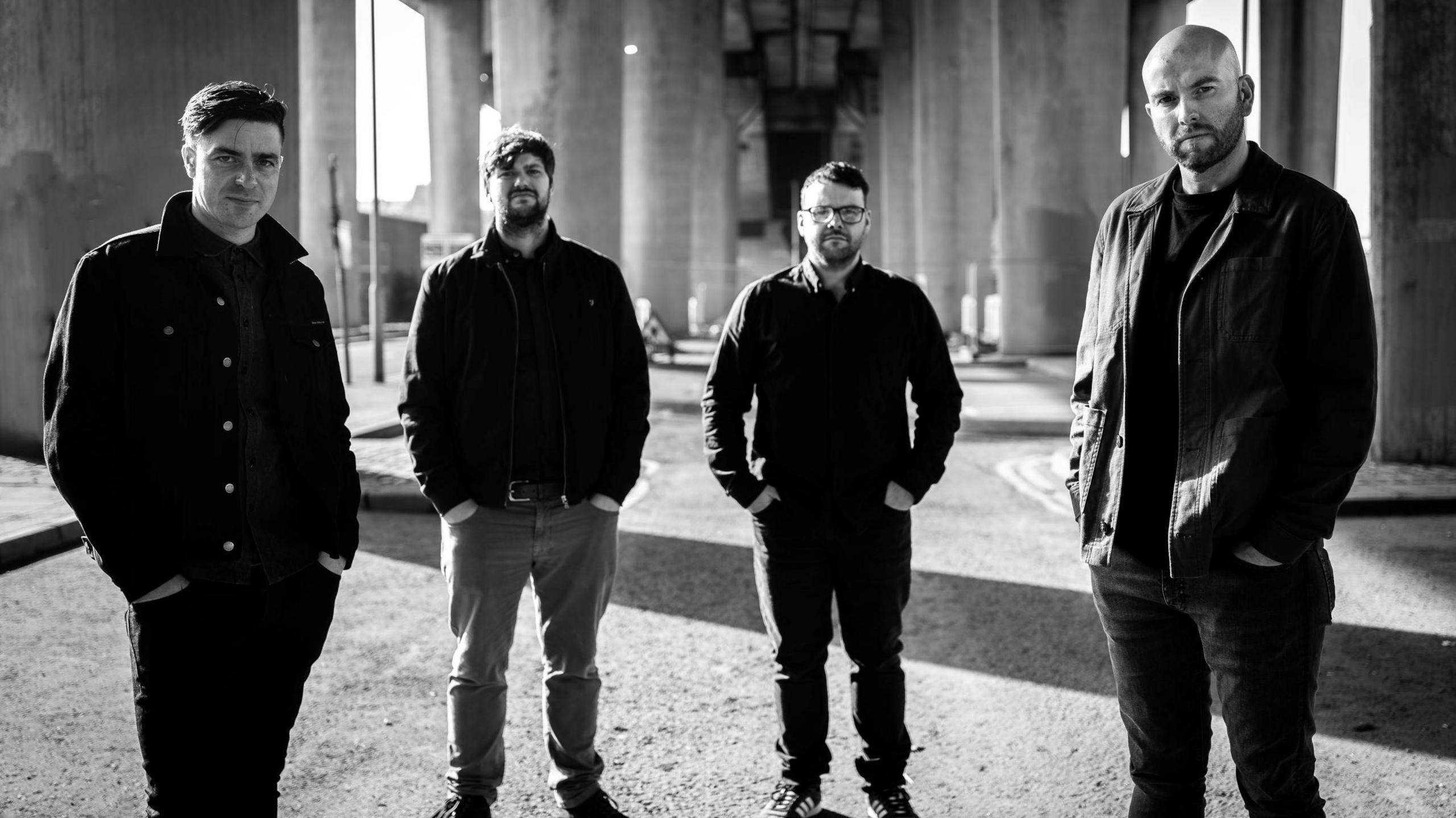
Nitework have been friends since school
That changed as time progressed, though.
"One of the things we have noticed over the time we have been doing this is a broader acceptance in general," reflects Allan.
"It’s cooler than it used to be to be speaking Gaelic or to be playing trad music. For example we were asked to score the fireworks at Edinburgh’s Hogmanay one year, which was the first time they had done that to music.
"We were quite a small band at the time and that was just a massive opportunity for us. We packed it with Gaelic and with pipes and everyone seemed to love it."
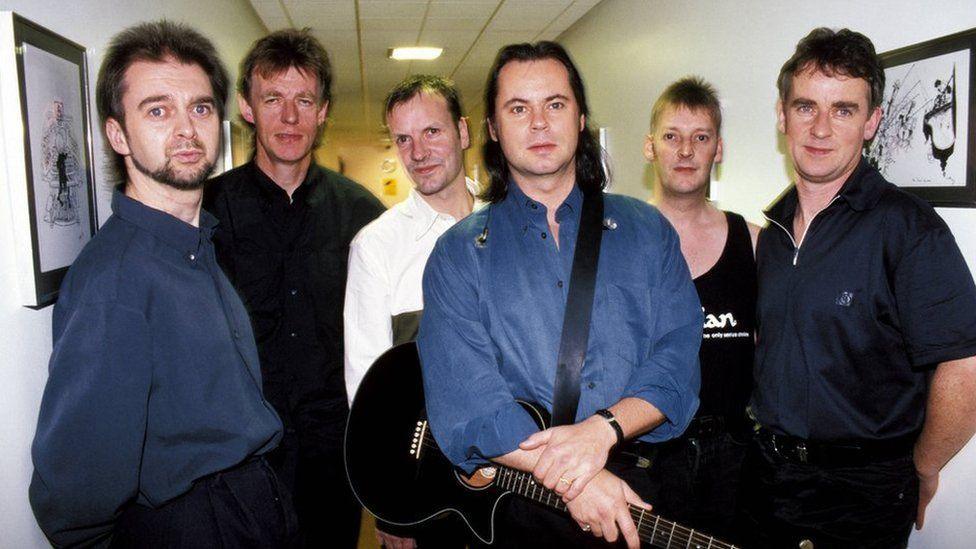
Runrig received the Niteworks covers treatment, including on farewell single An Toll Dubh" ("The Dungeon"
Allan is a passionate advocate for Gaelic culture, with a recent report warning that the language is in a "perilous state" and he fears that "so much history of the Highlands would be lost" if the language disappeared.
"There is so much identity wrapped up in the Gaelic culture and language. I think it’s just a great part of what it means to be Scottish, or from the Highlands, and on a more practical level it’s because of this culture that all these opportunities opened up for us, and for many other musicians."
Gaelic culture is not the only thing connected to the band disappearing.
Scottish music venues have declined in recent years, and old haunts of the group - including the famous Ironworks venue in Inverness - have closed.
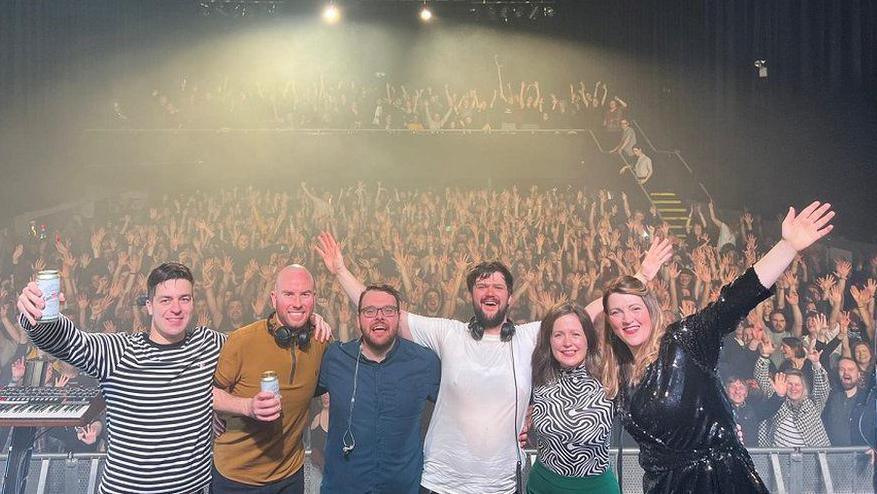
Niteworks take a bow after playing at the Ironworks in Inverness
"I think people were going through a moment of panic after Covid, like what does this mean for live music going forward," says Allan.
"It’s been boom and bust since then, where immediately after Covid everyone was so desperate for stuff – the band included – and people were going to everything.
"Then once that rush died, it has been difficult, whether festivals have overstretched themselves or just that the costs of everything have gone up ridiculously.
"A prime example of that struggle is we were looking for a place in the Highlands to play on this tour. We searched every village hall and every possible place, and there’s really only a handful available."
The quartet eventually settled on Eden Court in Inverness, which will join the Liquid Rooms in Edinburgh and the O2 Academy in Glasgow for the farewell tour come November.
The guitarist and piper is by no means done with music, and is hoping to juggle work as a DJ with his day job at a renewable energy company.
As for the band, he simply hopes they'll leave a legacy behind them.
"It would be cool if in some years time people looked back and said we’d inspired them, and it would be great to see bands pushing it further in whatever direction they chose to take it.
"I hope someone takes bits of pieces from us and does their own thing with it."